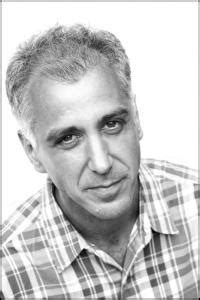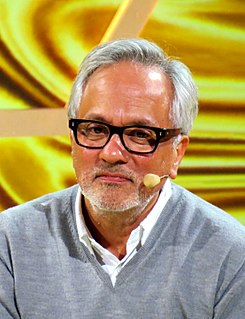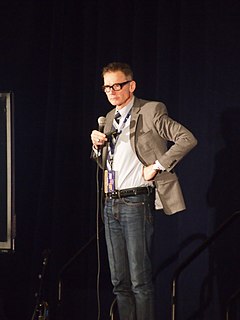A Quote by Adam Braver
I'm really sort of cautious about being too didactic. To me there are writers that can do that, but I think they drown in that after a while. I do think the job of a writer is to raise questions and nobody likes the questions being asked.
Related Quotes
As does every young man studying philosophy, I naturally asked myself questions about the truth of all this, and about the meaning of freedom, predestination, and liberty of choice and so on. But to have asked questions of yourself about it, I think is not too important. Let's say - I remain - I remained a believer.
Quite early on, and certainly since I started writing, I found that philosophical questions occupied me more than any other kind. I hadn't really thought of them as being philosophical questions, but one rapidly comes to an understanding that philosophy's only really about two questions: 'What is true?' and 'What is good?'
I think a writer's job is to provoke questions. I like to think that if someone's read a book of mine, they've had - I don't know what - the literary equivalent of a shower. Something that would start them thinking in a slightly different way perhaps. That's what I think writers are for. This is what our function is.
The United States are such a large place. And there are some states and some cities where the questions of gender or sexuality would not be asked, or where scholars or academics are working in small little corners of the universities trying to raise these questions and being told that either that they're strange or not appropriate or being actively opposed. There are other places where there is very active scholarship going on. Certainly on gender.
If sculpture can really deal with the body, because we all inhabit ourselves, and if sculpture can really do that, which it is supposed to be able to do, and through it ask questions, philosophical questions, about being, I think these are all things we work on, all of us in our different ways, so perhaps somewhere in there, there are moments where dumb objects can speak.
I am of the generation of writers who can get instant feedback from readers within hours of publication. The fan forum is extraordinary - readers from all over the world coming together to discuss, argue and debate scenes and characters from a novel. They add a layer to the story that I cannot write and yes, I will participate in that conversation and answer questions. After all, they are the people I'm writing for and their enthusiasm and questions really pushes me to raise the bar.
The great philosophers of the 17th and 18th centuries did not think that epistemological questions floated free of questions about how the mind works. Those philosophers took a stand on all sorts of questions which nowadays we would classify as questions of psychology, and their views about psychological questions shaped their views about epistemology, as well they should have.
Matt Lauer asked her [Hillary Clinton] tough questions, in fact, questions that should have been asked and followed up on by the FBI in their investigation where they came to a rosy conclusion. So to me, this was actually very helpful. And I think obviously it was big moment there, right out of the bat when we had the naval officer who really put it to Hillary and said listen .
It wasn't that I hated being asked a bunch of questions. I had nothing against questions. I just didn't like listening to them, because some questions take forever to make sense. Sometimes waiting for a question to finish is like watching someone draw an elephant starting with the tail first. As soon as you see the tail your mind wanders all over the place and you think of a million other animals that also have tails until you don't care about the elephant because it's only one thing when you've been thinking about a million others.
Science will always raise philosophical questions like, is any scientific theory or model correct? How do we know? Are unobserved things real? etc. and it seems to me of great importance that these questions are not just left to scientists, but that there are thinkers who make it their business to think as clearly and slowly about these questions as it is possible to. Great scientists do not always make the best philosophers.

































